‘Rummaging For God’ by Penelope Swithinbank: 7 Ways to Pray blog series
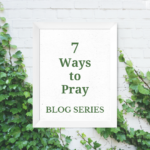
How can we look back with God in order to move forwards? Penelope Swithinbank shares from her years of spiritual direction how she helped someone recalibrate her decision-making process as she discerned her movements towards and away from God through the prayer of examen. I love the hands-on nature of Penelope’s exploration of this prayer practice, which can enrich our lives.
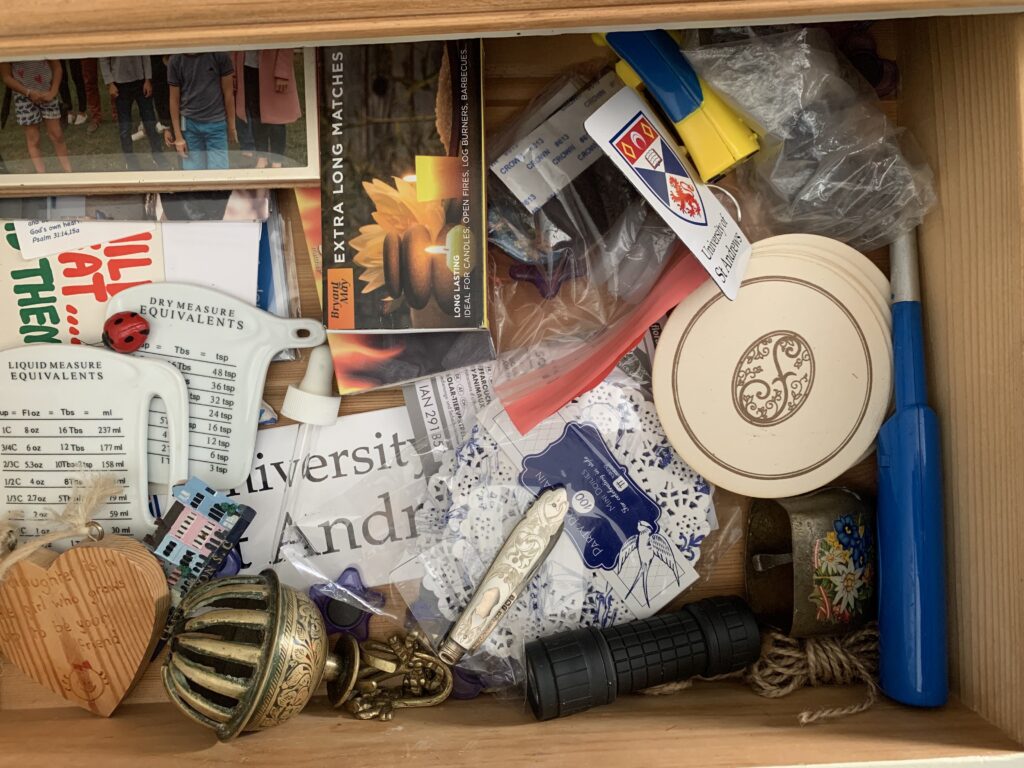
Laura twisted her fingers and heaved a deep sigh.
‘I really don’t know what to do,’ she said. ‘I think my job’s about to be made redundant; my parents aren’t well and maybe I should move closer to them, but I love my job, my church and my home here. How do I know what God’s plans are for me? What if I step out of His plans?’
As her spiritual director/counsellor, I felt God nudging me to give Laura a challenge. I suggested to her that for the next month, four whole weeks, she should ask herself two questions last thing at night.
First, a question of consolation. ‘What am I thankful for today?’ ‘Where have I known true joy today?’ Or, ‘Where did I see God at work?’
And then a question of desolation. ‘Where did I fail God today?’ ‘Where was I not at peace today?’ ‘When or where was I not content, not filled with God’s Spirit?’
I suggested Laura jot down her answers to the questions, just briefly, so that in a month’s time she’d notice any patterns, anything important, anything that the Lord wanted to point out or suggest to her.
These two questions are the basis of the ‘Examen of Conscience,’ a centuries-old way of praying that helps us detect God’s Presence in our lives and discern where He is leading and guiding us. It was used by Ignatius of Loyola, (16th C) who recommended praying it daily – and then twice a day, so that people keep short accounts with God.
Dennis Hamm describes it as ‘rummaging for God’ and says it’s like ‘going through a drawer full of stuff, feeling around, looking for something that you are sure must be there.’
It’s a rummaging back through the day, knowing that God was there, and we want to discover and be reminded of just where and how He was with us. A prayerfully going backwards through your day, with God’s help, to discern what’s most important – the things of God.
We want to hear His voice today, not close our ears, (i) and the Examen is one way to help us to do that. While the traditional name is The Examen of Conscience, which sounds as though you’re just looking for moral failures, the word ‘conscience’ probably had a deeper meaning of ‘consciousness,’ of being alive and acknowledging it mindfully. And of being grateful for the many gifts and blessings of the past twenty-four hours. Who doesn’t like getting gifts – but how often do we give thanks for God’s gifts each day?

Laura agreed to the challenge – and was very excited to try it. She even bought a lovely new journal for her daily Examen night prayer. Not everyone writes down what happens during the Examen, but I wanted Laura specifically to look for patterns and rhythms as she talked with God. I suggested that she begin each time by inviting the Lord to come and be with her and speak to her; then to ask herself the two questions and talk with Him about her answers, and finally to invite the Lord into what might lie ahead for the following twenty-four hours. (ii)
A month later, a peaceful Laura reported back. Her earlier worried questions had receded, because she had discovered something far more important than the specific whats and wheres and hows.
‘God’s plan is for me to be more like Christ in my everyday life,’ she explained. ‘Where I live or what job I do is secondary. Important but secondary. And going to sleep having rummaged around and put it all to rest, and then invited God into the following day, has not only led to extraordinary peace but a much better night’s sleep! I’m going to be making some important decisions in the next few weeks but now they’re based on a relationship with God and not on my fears and worries. And that’s made a huge difference to my everyday life.’
(i) Come and kneel before this Creator-God,
come and bow before the mighty God, our majestic maker!
For we are those he cares for, and he is the God we worship.
So drop everything else and listen to his voice!
For this is what he’s saying:
“Today, when I speak,
don’t even think about turning a deaf ear to me” (Ps 95: 6-9, TPT)
(ii) The five steps of the traditional Examen.


Penelope Swithinbank is an experienced pilgrimage/retreat leader, conference speaker and Spiritual Counsellor. She has had an international ministry, including churches in America and the UK, and her most special memory is of opening the US Senate in prayer and being guest chaplain for a day. Penelope is an avid walker and spends a lot of her time stomping in the hills and valleys near her home outside Bath.
She is the author of three books, Women by Design and Walking Back to Happiness; her third, Scent of Water, a devotional for times of spiritual bewilderment and grief, has just been published. She is a wife, mother and grandmother and says of the 6 grandchildren that they are so wonderful she should have had them first. www.penelopeswithinbank.com

Order 7 Ways to Pray here, including in the US, UK, and Australia. The seventh way to pray is the examen, so you can explore this life-giving prayer practice further. You’ll also find lots of resources for small groups – videos and a leader’s guide – here.

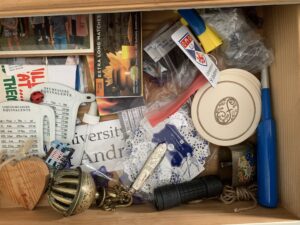




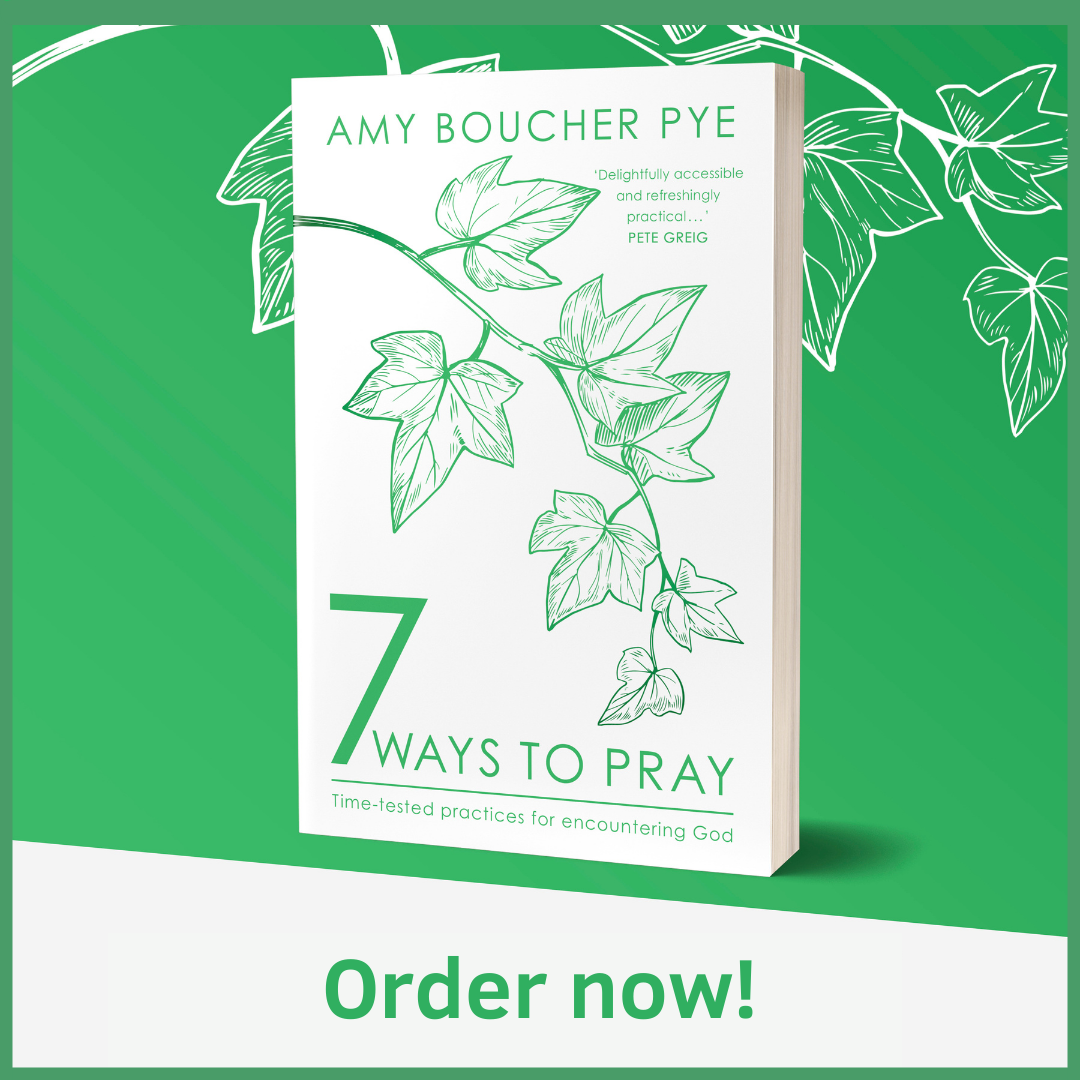
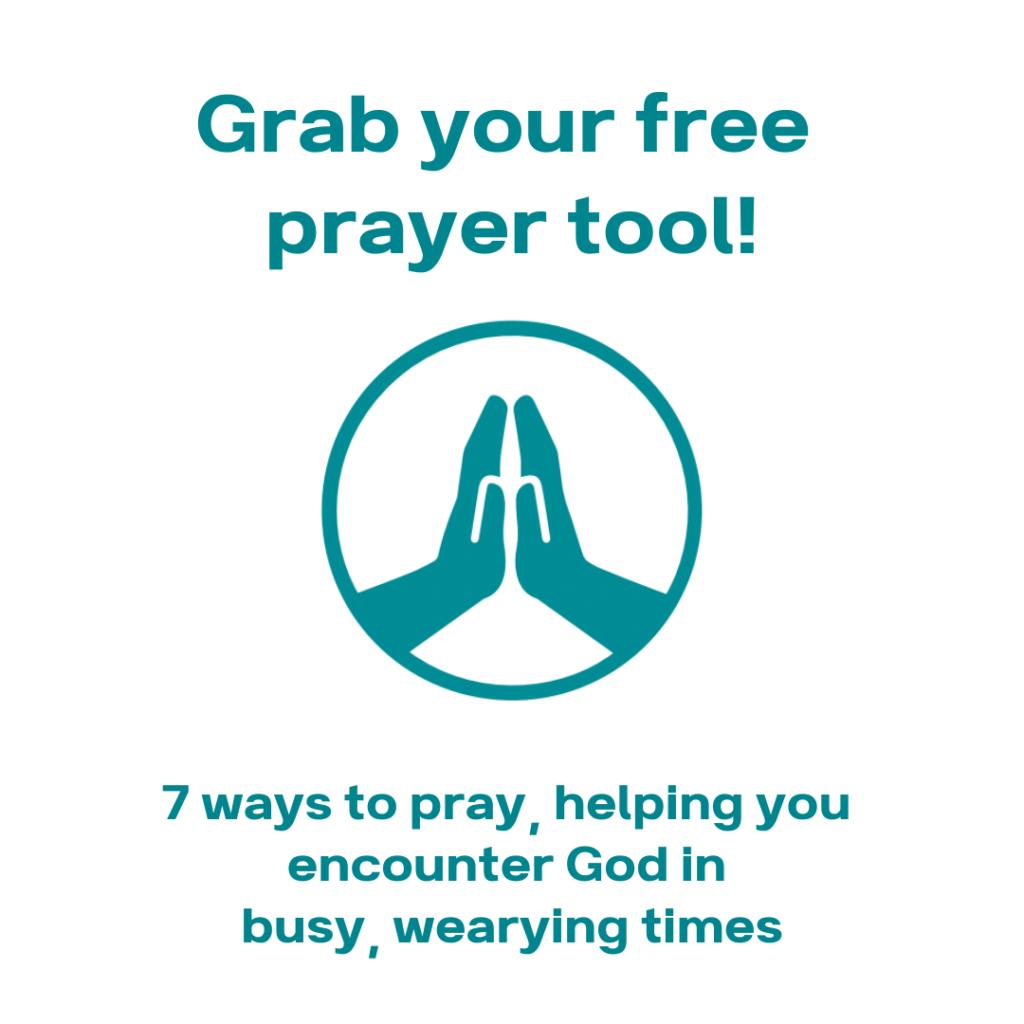
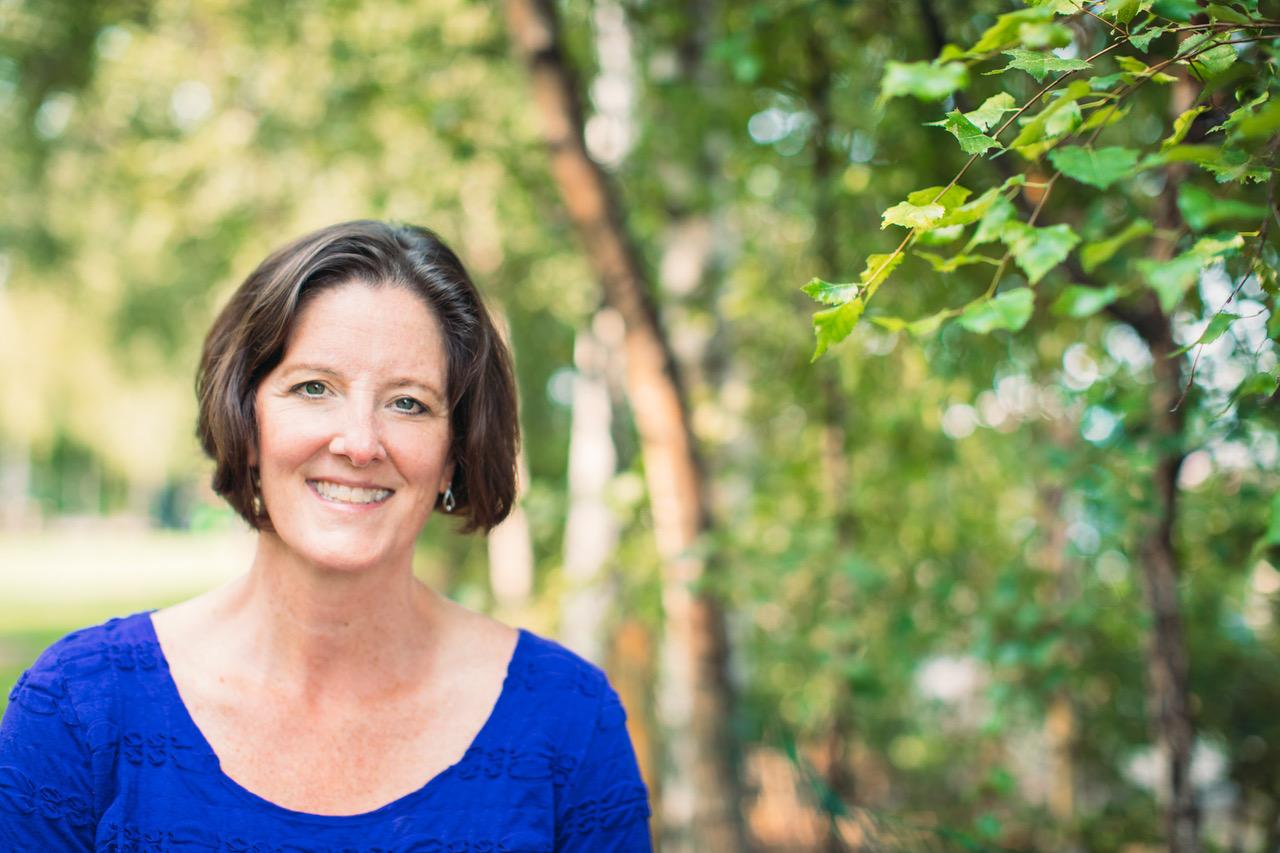 Hello!
Hello! 